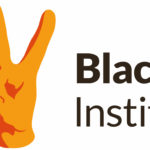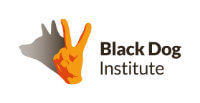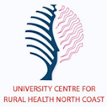I noticed recently that 14th March has been designated “Social Prescribing Day”. There are a lot of such days on our calendar and I wonder how much attention most of us pay to them. These special days were a good idea when they began (does anyone remember how it started?) but I wonder if they are becoming too much of a good thing. If every day has a special designation (or two) are we at risk of not paying attention to any of them?
That said, I definitely think social prescribing is something worth talking about and doing well in clinical practice. If a special day brings social prescribing to the attention of some of us who haven’t thought much about it, that’s great.
Where does social prescribing fit?
Having been a GP for a lot of years I have spent a lot of time talking to people about the way they live their lives, what they do and what their interests are. I have always been a GP with a special interest in mental health and those conversations have been important in many ways. Getting to know someone and develop a sense of what they can do to improve their general wellbeing is an important part of primary care, especially when it comes to mental health. It is also an important basis for social prescribing.
What’s wrong with calling it social prescribing?
What surprises me is that the notion of social prescribing seems to be new to some people. What worries me is that the process is actually called “prescribing”.
“Prescribing” by its very nature is prescriptive. It carries with it a sense of telling people what to do. It comes from a latin word, praescribere, that means “direct in writing”.
Dictionary.com defines the verb prescribe as follows:
verb (used with object),pre·scribed, pre·scrib·ing.
- to lay down, in writing or otherwise, as a rule or a course of action to be followed; appoint, ordain, or enjoin.
- Medicine/Medical. to designate or order the use of (a medicine, remedy, treatment, etc.).
I don’t know about you, but when I think about interactions with real people about their lives, these definitions make me feel quite uncomfortable.
How can we do it?
In medicine, especially in general practice, most of us no longer tell people what to do. It may be what we used to do and it may be what a few of our patients expect us to do. It may even be appropriate at times, especially when treating physical health conditions such as diabetes or heart disease. But is “telling people what to do” appropriate in mental health care?
The non-medical interventions we recommend in social prescribing are clearly a good thing for our patients’ health and wellbeing but the success of our efforts is all in how we go about it. We are able to help people find things that will enrich their lives and improve their wellbeing and we have a duty to do so. Depending on the person that activity may be involvement in a sporting team, a choir, a community garden or as a volunteer for a charity. It may be a men’s shed, a youth centre, a knitting circle, a bookclub or a MOOC (Massive Online Open Course – here’s some examples).
Whatever they choose it’s not going to be helpful for us to simply “prescribe” such an activity, if prescribing means to write it down and make it law. We need to discuss, recommend, encourage, provide examples, persuade, explore possible ways to make things happen and take the persons needs and preferences into consideration.
And we need to persevere! In hypertension we check to see that the medications are being taken as directed, discuss adjunctive lifestyle measure, recommend changes if medications are not working, discuss side effects if they are being experienced. In the same way we need to revisit our social prescriptions. These are serious interventions for which there is evidence of effectiveness and they need to be taken seriously if we are to see positive results.
So what should we call it?
I’m still struggling with the appropriateness of “prescribing” in this context. I’ve found a few synonyms – recommend, advocate, propose, suggest, encourage, support – and I’m still not happy. The closest I can come to what I want to convey is “social support” but that terms has other meanings too that muddy the waters and may not appeal to those who want a term that seems more “professional”. I’ll let you decide what you want to call it but my message is that we need to make sure we include “non-medical” interventions into patient care. Who knows, our encouragement might be all that some people need.






